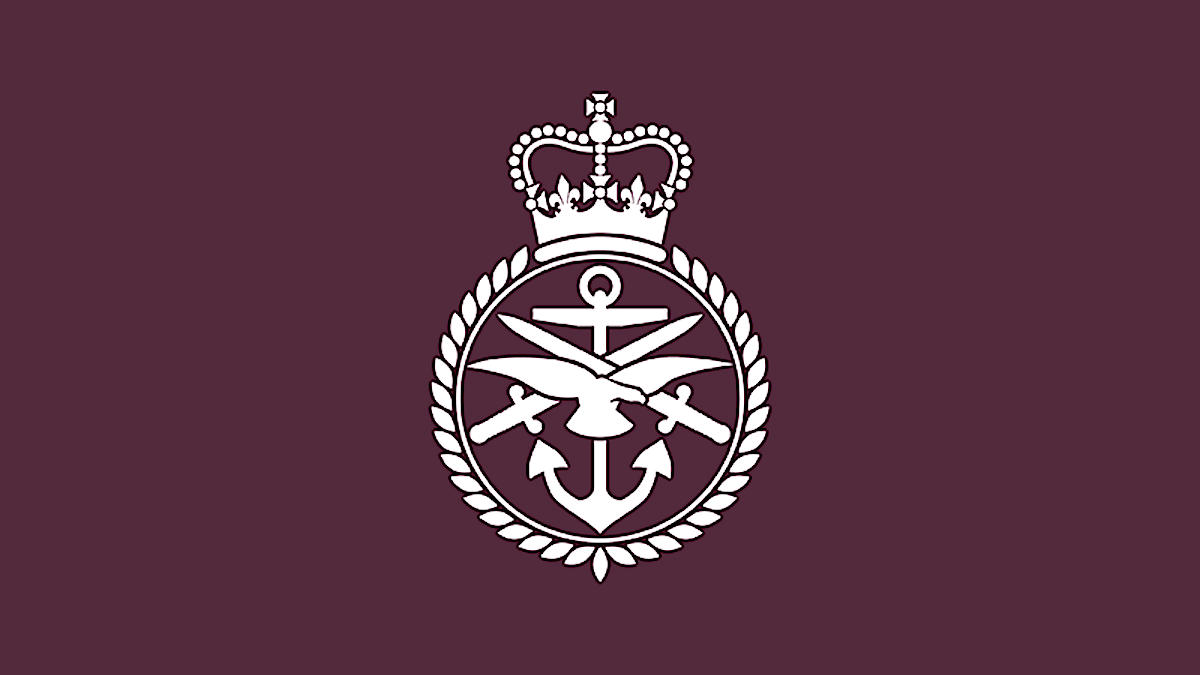UK Ministry of Defence to recruit nonreligious chaplains

When he joined the Royal Navy, a friend of mine was asked his religion. When he answered that he was nonreligious, he received the reply, "Well in that case, we'll put you down as Free Church."
There was no existing way to accommodate such a category at the time.
The Armed Forces are generally associated with tradition, and by extension, it can be fertile ground for religiosity. But times change. And with a general move away from organized religion in the Western world, institutions will eventually catch up. In 2018, humanist pastoral carer Lindsay de Wal was in the news for being appointed as the first humanist to lead a chaplaincy and pastoral care team in the National Health Service (NHS). Indeed, in August of this year, the new NHS England guidelines mandated equality in non-religious and religious pastoral care for the first time.
I recently interviewed James Croft, who has written here at OnlySky, on his appointment as the first nonreligious university chaplain to the University of Sussex.
In a different context and built on a foundation laid by Humanists UK and its subgroup Defence Humanists, the British Ministry of Defence (MoD) has announced that it will recruit non-religious pastoral support officers for the first time, to operate alongside religious chaplains. The goal is to recruit chaplains to each of the three arms of the services, the Army, Royal Navy, and the Royal Air Force. Defence Humanists have also been working together with the MoD's own Humanists And Nonreligious in Defence (HAND) group.
The pastoral care given by nonreligious chaplains is explained by Humanists UK:
Nonreligious pastoral care is support that encompasses the emotional, moral, ethical, and existential aspects of life. It is grounded in a nonreligious outlook and nonreligious pastoral carers provide support to people in hospitals, hospices, prisons, universities, and hopefully soon the armed forces. As part of its support of the expanding NRPSN, Humanists UK works to increase provision across all sectors, and in every part of the UK.
The Nonreligious Pastoral Support Network (NRPSN) was founded in 2016 by Humanists UK and has since enabled the training and accreditation of over 220 (mainly voluntary) current pastoral carers, who work in 10% of prisons and 30% of NHS Trusts in England and Wales.
In light of this news, Humanists UK’s Head of Humanist Care Clare Elcombe Webber has stated:
We are delighted that the armed forces will be recruiting nonreligious pastoral support officers. This historic step reflects growing demand for the service. In times of critical need, people need person-centred support. Just as this is true of religious people, so it is also true of the nonreligious. We look forward to continuing our work with the Ministry of Defence to see this recruitment take place.
The MoD has certainly recognized the growth in the nonreligious demographic and so, back in 2020, commissioned an independent review into nonreligious pastoral support in the armed forces. In 2021, the recommendation followed from the report that there should be support for and by the nonreligious.
Statistics from the Armed Forces show that 38% of regular forces and 30% of reserves declare they have no religion. Previous figures from 2012 show that there has been a big increase in this demographic, rising from 15% and 18% respectively. This is hardly surprising given that the Armed Forces will generally recruit from younger people, and so this will reflect the societal trend: Around 70% of young people now identify as non-religious.
President of Defence Humanists (and former MoD Director, International Security and Senior Champion for Humanists and the Non-religious in Defence) Dr Roger Hutton, sees this as an important step on the back of continued work:
We have long aspired to be able to provide serving non-religious personnel with like-minded pastoral support, as is already the case among a number of allies. We have worked closely and productively with the MoD to achieve this and are grateful that they, with the full support of the existing religious chaplaincy, are taking this important step. This is about supporting the brave men and women of Britain’s armed forces through the many challenges of a service career. And that, in turn, can only be good for the nation’s defence in these troubled times.
In the UK at least, it seems that nonreligiosity is thoroughly normalized and probably has been for many decades. Where the US has long suffered with religious fervor, the UK is more used to religious apathy. There are at present no nonreligious chaplains in the US Armed Forces, but perhaps news from the UK may percolate among the powers that be to catalyze some kind of change.